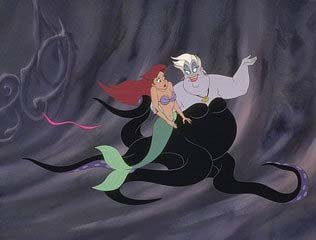When Do You Lose Your Voice?

I've been on both sides of the beta read.
In the following hypothetical situations, I've also been the reader making vague or specific suggestions. For simplicity's sake, I'll discuss it from the writer's side today.
I've experienced what it's like to have someone tell me: "This paragraph [scene/chapter/last third of the book] doesn't work. You could probably cut about 10,000 useless words if you tighten this."
My response: That's great, but how? If I knew which words were useless, I wouldn't have included them.
Then again, the beta reader may rewrite the five-page scene where the hero and heroine storm the castle as, "They ate ice-cream."
My response: Wtf? That isn't what I wanted to say, or how I would have said it.
However, frequently I do accept a beta reader's suggested changes, especially of clunky sentences, even scenes, wholesale.
Suppose what I had written was originally, "Laboriously, yet also suddenly and instantaneously the bullet kaboomed and zoomed out of the gun muzzle on the gun she was holding and pointing at him, hurtling through the air like a speeding bullet, which in fact it was, until it began to pierce his broad yet vulnerable chest, fragmenting bone and hurting a lot."
The beta reader suggests, "She shot him."
And I think, "Brilliant! This captures the whole thing in just three words! Why didn't I think of that?"
But then a part of me looks at the stripped down version, and wonders, but has it lost my voice? Did I do more than put out the fire on the roof, did I kill the spark in the lamp?
Do you ever worry about losing your voice during rewrites?
Comments
Actually, I feel like my first three chapters suck right now. But, I wonder if I came back to them later if I would feel like they are in tune with the rest of the mnauscript?
It's so hard to know when you're looking at the same words, over and over and over...
I feel your pain. :)
A lot of beta readers (and I do it do my own mss myself!) rush through the end. Sometimes the reason is good (they got caught up in the story), sometimes bad (they got bored and wanted to finish quickly) but either way, what do you do? Your books is now uneven, and the style may be different from chapter to chapter.
Uneven prose is a big concern for me, because my narrator speaks in a sort of Elizabethan English. The earliest chapters I wrote were very Shakespearean in voice, but over time I modernized his speech a bit. Passages that remain untouched from the first draft (and to my surprise there are actually such passages) really jump out at me in my current read-through.
Brand new scenes also tend to stand out, often because they are rough and full of typos.
Because of that, I always try to offer questions first--and when I do suggest a scene, I try to remind the author that it's just my opinion.
I know it stings to get criticism, especially when it may not make sense. But always remember, it's your story and what someone else says about it, you can take or you can leave.
After all, perhaps my real voice is Ursula's and the beta reader is my Ariel. I can't steal her voice forever. I have to learn to sing on my own.
Still, sometimes it helps to have someone show you how they would handle the same sentence or paragraph. Then you can decide how much of that you want to use.
I was asked to critique a few chapters two weeks ago and it scared the crap out of me as I do not feel I am skilled in writing enough to do such a thing.
I read the persons work and had no clue how to articulate why it was so boring. I felt bad as she deserved a fair critque.
I am concerned I might be giving bad advice as well. Neeless to say I am not critquing until I have more experience!
I hope I didn't scare you off from giving crits. If you told yourself you weren't going to start writing until you were skilled enough, you'd never learn. The only way to learn to write is to write. And the only way to learn to crit is to crit. Actually, critting will also help you learn to write.
Don't be afraid of critting "wrong." If you say, "I'm sorry I started to get bored around the page" or "I really didn't like the heroine" that is already extremely helpful to the writer.
I just had a beta reader who told me at a certain point in my book, "This is where I would have stopped reading." This is tremendously helpful information. (Hard to hear, but that's a different matter.)
If you still want hints on how to crit there are lots of good cheat sheets for questions to ask yourself as you read. But the simplest one of all, "Would you keep reading?" is one any reader can answer.
I wasn't sure if I was bored because it was about a subject I have no interest in or the writing.